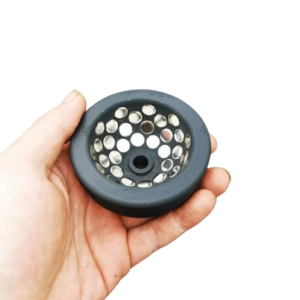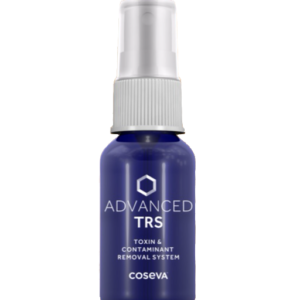CBD’s benefits are well recognized. Cannabigerol (or CBG) is another cannabinoid that’s gaining popularity. In comparison, CBG provides unique advantages when used alone or together with a CBD product.

CBG & Its Effects
The Cannabinoid system primarily deals with controlling many functions in your body, such as pain, mood, and many more basic functions. Since each cannabinoid has a distinct role, each can actually help with many different imbalances. CBG attaches to the CB2 receptors existing throughout your body. CBG is specifically responsible for relieving depression, pain, and anxiety.
Based on studies by Israel’s Dr. Raphael Mechoulam, they have shown that CBG helps with lowering intraocular pressure. Since there’s a link between intraocular pressure and glaucoma, lessening it brings relief to those affected. Medical marijuana for glaucoma treatment has been a thing for decades. However, with information on cannabinoids’ specific role, the treatment could now improve significantly.
CBG is regarded non-psychoactive. With the application of plant enzymes, CBG biosynthesizes THC during the flowering duration of plant growth. Although CBG has special benefits, it wasn’t until recent years that it became accessible. Farmers have now introduced a variety of CBG flowers, which create a product with over 15% CBG content.
CBG & The Endocannabinoid System
Some of the endocannabinoid system’s functions are regulating sleep, pain, and appetite. Because of the specific function CBG demonstrates, it can provide relief of particular disorders. The fact that CBG isn’t psychoactive makes it a much more exciting choice than THC to most people. Although THC might have a huge benefit potential, some people don’t want to be impaired by it. Instead, they could very well use the benefits from a similar compound without the whole feeling of ‘getting high.’
CBG may be the best option since it has many similar benefits to THC, but it doesn’t cause a ‘high’. The two compounds are chemically structured alike. That enables them both to adhere to the receptors in a certain way. CBG predominantly attaches to the CB2 receptor and partly to the CB1 receptor. Many people claim that the preference for CB2 receptors is why some cannabinoids are non-psychoactive. The partial binding that exists from CBG to the CB1 receptor seems responsible for the anti-depressant and anxiety relief.
CBG for Stress
Depression, anxiety, and stress are three things that might trigger each other and could become a vicious cycle. For instance, some studies prove that CBG/CBD could have beneficial impacts.
Stress
Stress can be a health risk, it was only recently that the medical cartel began to treat it as such. It usually affects both your mind and body, and worst-case scenario, stress could cause serious illness. Stress management and perceptions could vary from one person to another, and so would the response to the treatment.
Stress isn’t necessarily dangerous. It often depends on your stress’ duration and severity. It could have different symptoms. Other individuals feel it psychologically as mood swings, insomnia, depression, or low self-esteem. Some people feel it through fatigue, heart palpitations, or perhaps extra sensitivity to pain or appearance of ulcers.
Cortisol and Stress
The adrenal gland creates a stress hormone called cortisol. This hormone possesses an anti-inflammatory and stress-alleviating effect on the body when released. But too much cortisol over time could cause the opposite effect and enable infections or perhaps attack the immune system.
The stress hormone in itself is quite harmless, provided it’s secreted in small quantities and for a short duration. Cortisol comes out in large amounts during constant strain and chronic stress. But, if the pressure and stress increase, production will go out of whack!
CBG for Depression and Anxiety
Anxiety comes in various forms. It could lead to stomach pain, insecurity, extreme nervousness, even a phobia. It often starts with the fear of social problems and progresses with fear of performing usual daily tasks – it could even cause you not to leave your home.
Depression may develop from long term anxiety and stress disorders. It’s a feeling of loneliness and emptiness. It could even deprive you of the control over your body such that you can no longer perform your usual tasks and duties.
Many things cause depression, often psychological stress that causes brain imbalance. According to researchers, individuals with depression usually have a dopamine and serotonin deficiency. “Brain Bliss” is another term for the dopamine signal. The release of dopamine enables a feeling of pleasure and happiness. Furthermore, serotonin is a neurotransmitter influencing self-esteem, mood, and many other things. This is exactly where CBD and CBG can offer a helping hand.
Effects of CBG On Stress, Depression, and Anxiety
Studies related to CBG and anxiety describe cannabinoids such as CBD and CBG as potential tools to support anxiety, stress, and depression since they can interact with your endocannabinoid system. Itself a network of neurotransmitters and receptors that help regulate most body mental and physical.
Both CBD and CBG can positively impact the body and overall health by enabling it to regulate its stress response. It’s also worth noting that external factors contribute to stress.
Although CBD can affect many things, it can’t necessarily minimize daily external / internal tyranny. Individuals with miserable depression possess fewer signaling agents, like serotonin and dopamine. These hormones have a significant role in terms of mental balance, mood, self-esteem, and happiness. If these messengers’ receptors eventually deplete, it means you might have depression.
Although CBD/CBG cannot “cure” depression. Studies suggest that they can activate the serotonin receptor and actually cause a positive mood and more self-esteem. In this case, it might trigger an anti-depressant like effect. There’s more research showing that CBG and CBD might be a healthy supplement; however, it’s not a “cure” for depression, it may only help alleviate the symptoms.

CBG And Anxiety & Depression – A Treatment?
Research on cannabis may always be short in supply. Yet, there are many possible therapeutic CBG uses previously recognized. Early research suggests that it may address symptoms of Huntington’s disease, colorectal cancers, inflammatory bowel disease, and glaucoma.
Another interesting area is CBD’s role in mental health and treating clinical depression. What’s more, researchers have realized that CBG can prevent serotonin and GABA uptake in the brain. That feature in itself could lead to improved levels of the brain’s neurotransmitters. There are links between depression and reduced serotonin and GABA levels. Thus, making CBG a promising choice in addressing symptoms of the disorder.
The other interesting part is that with GABA, CBG can prevent uptake more effectively than other cannabinoids – THC and CBD. This is worth noting since, just like CBD, CBG is also non-psychoactive and contains no intoxicating effects at all. In this way it could help with mild mood boosters.
And , it’s also said that CBG can generally enhance Anandamide production, an endocannabinoid called “The Bliss Molecule.” Anandamide ups dopamine levels and regulates various functions such as appetite, mood, and sleep.
There was a 2015 study, that analyzed both rats and humans. It found out that high anandamide levels contributed to fear reduction and mood enhancement. After inhibiting the enzymes responsible for breaking down anandamide, CBD thus led to a reduction in anxiety and fear when faced with risk.
CBG and Anxiety
CBG effects can have a significant positive impact on many people. The current thought is that CBG may help with glaucoma, depression, anxiety, and many other disorders.
The effects of CBG and anxiety can differ, and it is always essential to confirm what works best for you.







